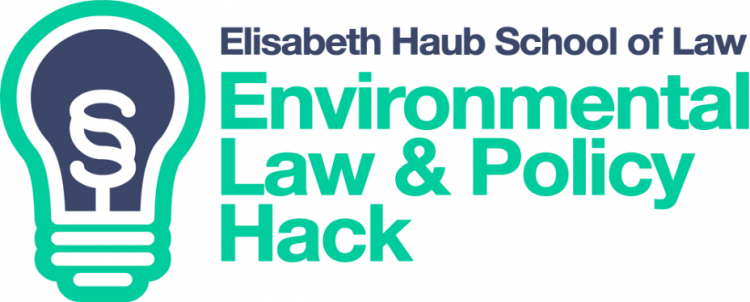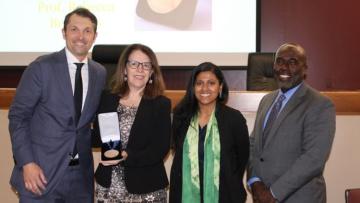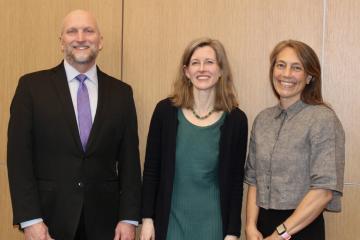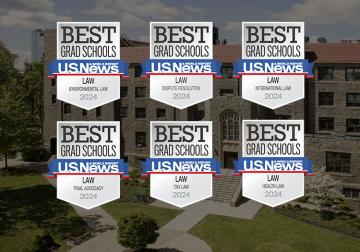Three teams chosen as finalists for the first annual Elisabeth Haub School of Law Environmental Law & Policy Hack Competition on Nov. 13

Three teams from the University of Colorado Law School, Drake University Law School and Vermont Law School have been chosen as finalists for the first annual Elisabeth Haub School of Law Environmental Law & Policy Hack Competition, an environmental law and policy problem-solving event that invites students to propose an innovative and practical response to a current environmental challenge and awards seed funding to support implementation of the winning concept.
Law students around the country were challenged to propose policies that local governments can use to create vegetative spaces that will help to mitigate and adapt to climate change. The virtual presentation of team proposals and the announcement of the winner will take place on November 13, 2020, from 1:00 pm to 4:15 pm. Please register for the Zoom webinar here.
This competition is intended to orient law students toward the development of practicable environmental policy; encourage students to collaborate with policy stakeholders, including from government and the community; catalyze the conceptualization and implementation of innovative solutions to pressing environmental problems; and further our commitment to advancing environmental protection.
We invited students to contemplate the complex law and policy questions posed by local management of climate-friendly vegetative spaces and to offer nuanced analysis and concrete guidance for a specific community or communities facing these questions.
Teams were invited to select a specific jurisdiction upon which to focus or to make a proposal addressed to typical municipal laws. The prize for the winning proposal is $2,000, to be used toward executing the winning plan in the designated location.
A panel of Pace faculty selected three team submissions as finalists:
- The University of Colorado Law School team – Leah Vasarhelyi, Lucas O’Brien and Dillon Clayton – proposes producing climate-friendly landscapes in Denver that promote mitigation and adaptation to climate change. Read the brief here.
- The Drake University Law School team – Bradley Adams and Kathryn Leidahl – proposes tailoring landscape ordinances to support Cedar Rapids, Iowa’s stormwater management. Read the brief here.
- The Vermont Law School team – Mariana Muñoz and Arielle King – proposes developing . Read the brief here.
The final round judges are Prof. Julie Cheslik of the University of Missouri – Kansas City School of Law; Prof. Shelby Green of Haub Law; Christopher Rizzo, a Haub Law alumnus and a Litigation, Environmental Law, and Land-Use lawyer with Carter Ledyard & Milburn LLP; and Daniel Zarrilli, Chief Climate Policy Advisor and OneNYC Director, NYC Office of the Mayor.
Please join us for the Zoom webinar event – for more information, click here or contact Lorraine Rubich at lrubich@law.pace.edu
About Elisabeth Haub School of Law
Elisabeth Haub School of Law at Pace University offers J.D. and Masters of Law degrees in both Environmental and International Law, as well as a Doctor of Juridical Science (SJD) in Environmental Law. The school, housed on the University’s campus in White Plains, N.Y., opened its doors in 1976 and has over 8,500 alumni around the world. The school maintains a unique philosophy and approach to legal education that strikes an important balance between practice and theory.
Haub Law launched its Environmental Law Program in 1978, and it has long been ranked among the world’s leading university programs. Pace’s doctoral graduates teach environmental law at universities around the world. Pace’s J.D. alumni are prominent in environmental law firms, agencies and non-profit organizations across the U.S. and abroad. In 2016, the Law School received a transformational gift from the family of Elisabeth Haub, in recognition of its outstanding environmental law programs. law.pace.edu.



